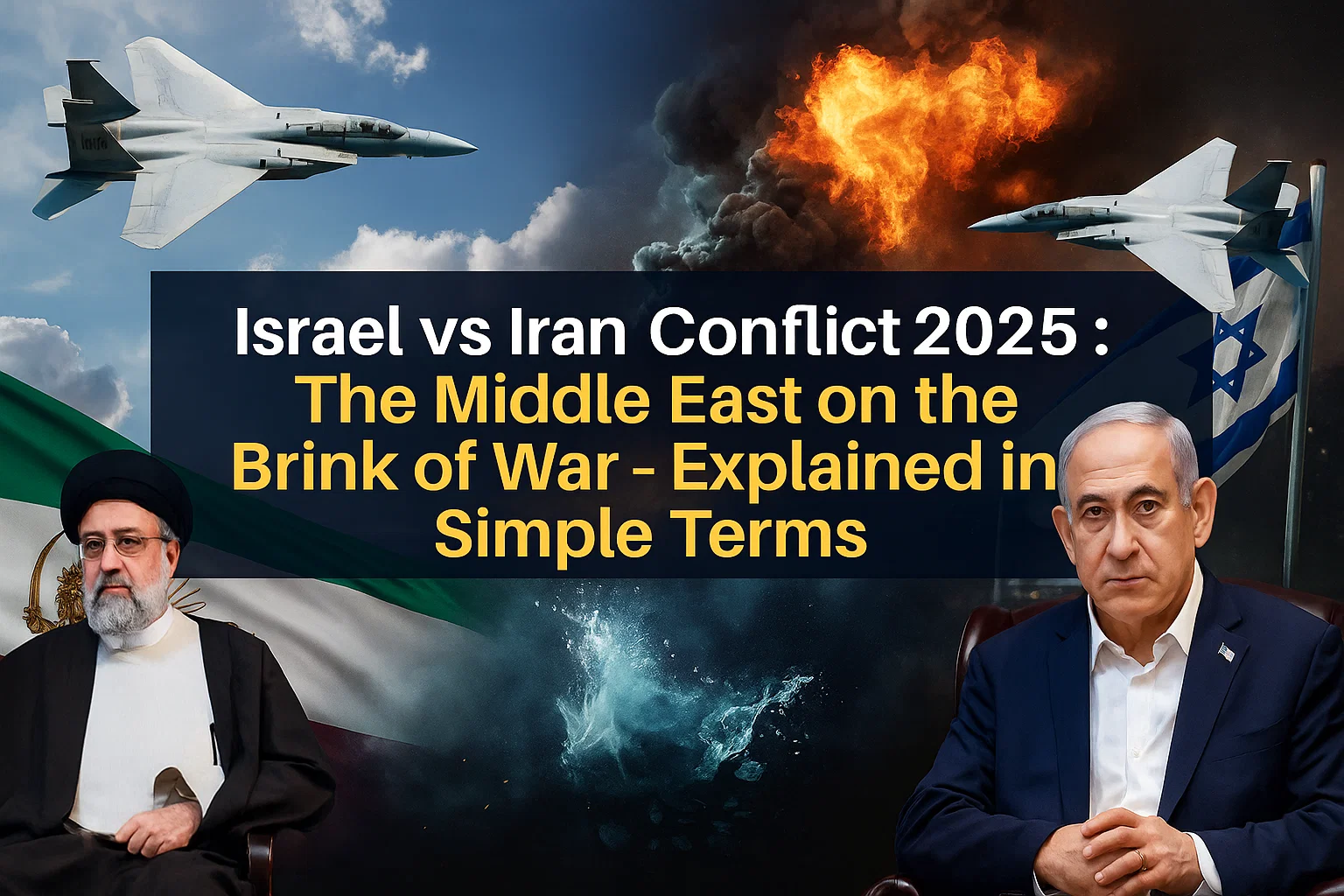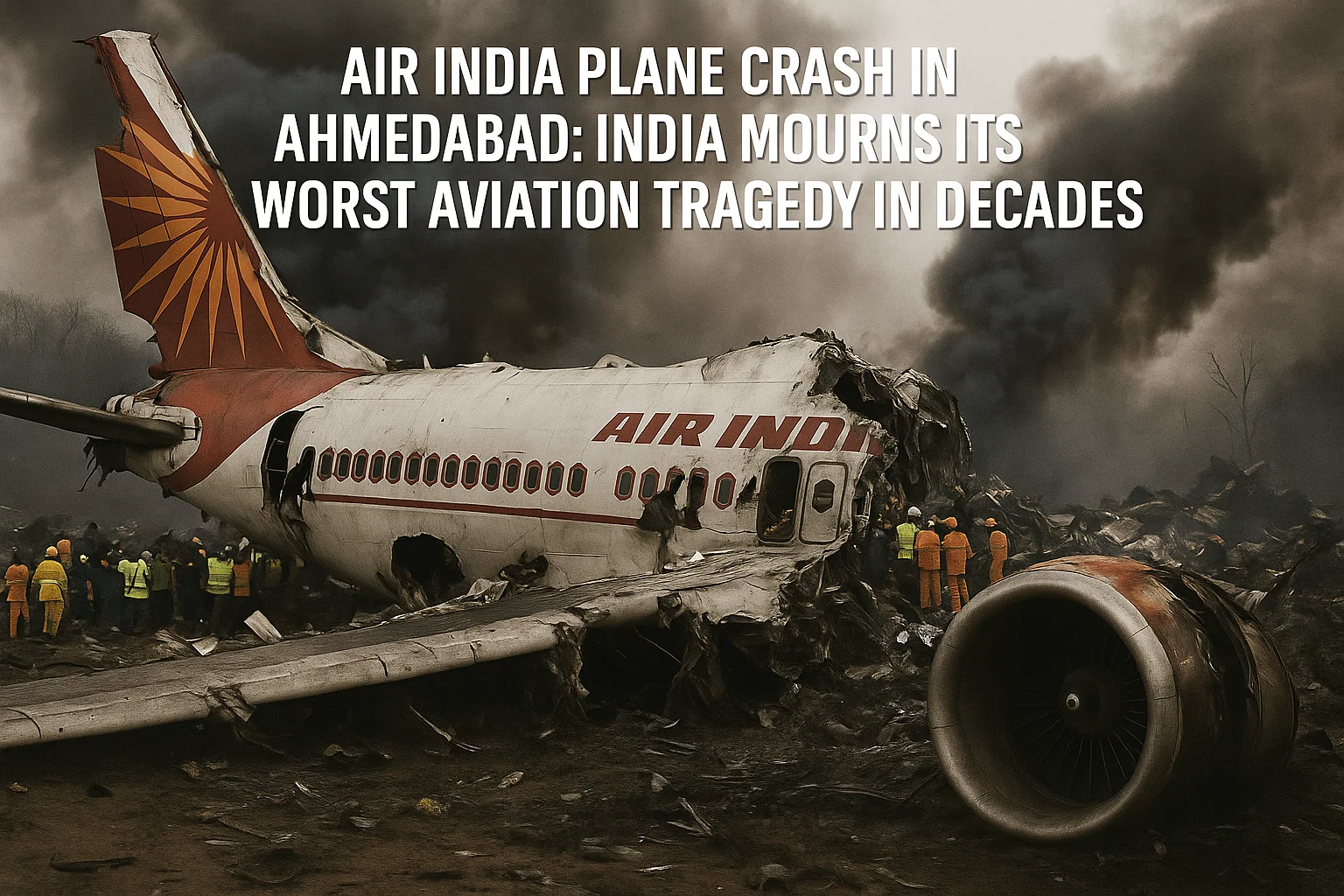Today, we’re discussing a matter that’s shaking the entire world — the rising tensions and direct conflict between Israel vs Iran. This is not just another political spat; it has the potential to reshape the entire Middle East and create ripples across the global stage. Let’s break it down in easy-to-understand language.
Today is June 17, 2025, and the battle between these two nations has reached a new and dangerous phase. What was once a “shadow war” — where they fought through proxies without directly confronting each other — has now turned into a full-blown direct military confrontation.
How Did This All Begin Israel vs Iran?
The turning point came on April 1, when a missile strike hit the Iranian embassy in Damascus, Syria. Several high-ranking Iranian military officers were killed. While Israel didn’t officially claim responsibility, it was widely understood that they were behind the attack.
In response, on April 13, Iran launched a massive retaliation. They fired hundreds of drones and missiles at Israel in a military campaign they named “Operation True Promise.” Israel, with help from its allies and its powerful Iron Dome Air Defense System, managed to intercept most of the threats. However, the message was clear — both countries are now ready for direct conflict.
The Conflict Intensifies: Israel vs Iran on the Brink
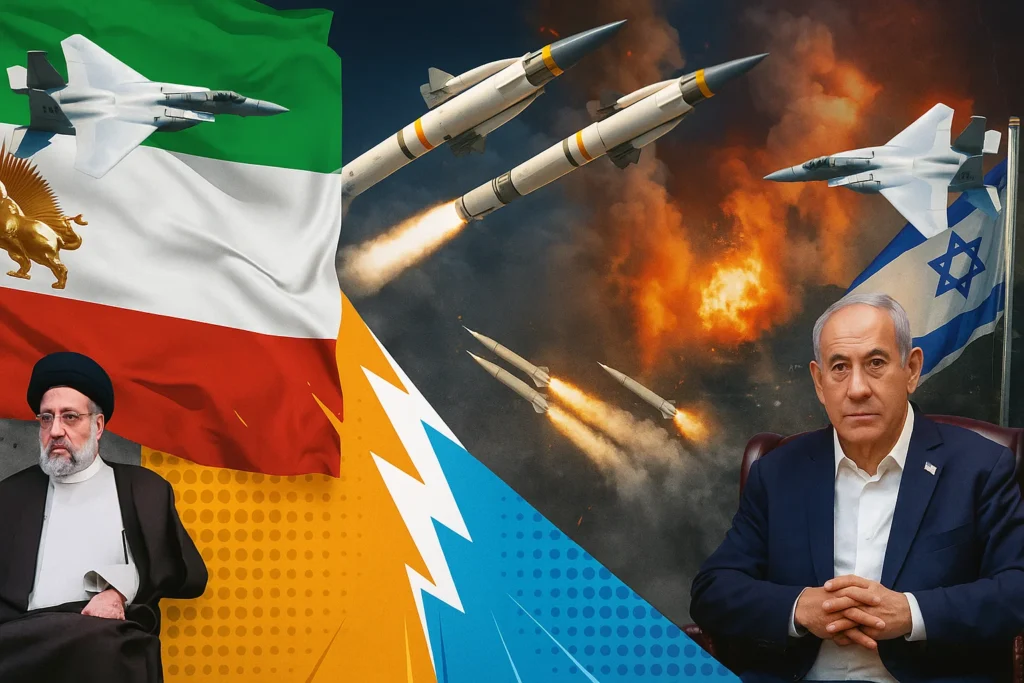
Following Iran’s significant attack on April 13, tensions boiled over as Israel launched a fierce counter-offensive named “Operation Rising Lion”. On June 16 and 17, Israeli fighter jets struck multiple strategic locations across Iran. The airstrikes reportedly led to the deaths of over 224 individuals, which included top-level military commanders, nuclear experts, and numerous civilians.
The targets included critical infrastructure such as nuclear research centers, fuel storage facilities, and key military zones. In response, Iran retaliated with a barrage of ballistic missiles and unmanned drones, hitting major Israeli cities like Tel Aviv, Haifa, and Jerusalem. Among the damages were a vital Israeli power station and several oil refineries, which were temporarily shut down. In a dramatic moment, Iranian state TV had to abruptly halt a live broadcast as explosions forced anchors to flee mid-air.
As of today, the conflict has entered i ts fifth consecutive day, with no signs of cooling down. Israeli Prime Minister Benjamin Netanyahu declared the operation would persist until Israel’s safety is guaranteed. Meanwhile, Iran has claimed that it seeks peace—but not at the cost of being silenced while under attack.
Once Allies, Now Arch-Rivals: How Did Israel vs Iran Start?
Decades ago, Israel and Iran were not enemies. In fact, before Iran’s 1979 Islamic Revolution, both nations maintained diplomatic ties and modest trade relations. Iran even supplied oil to Israel, and there were cooperative engagements between the two governments.
However, things took a sharp turn when Iran transformed into a theocratic Islamic Republic. The new leadership adopted a hardline anti-Israel and anti-Western ideology, branding Israel as the “Little Satan” and the United States as the “Great Satan.” Since then, Iran has supported Palestinian militant groups, leading to a long-standing geopolitical and ideological clash with Israel.
Key Drivers of the Israel vs Iran Conflict
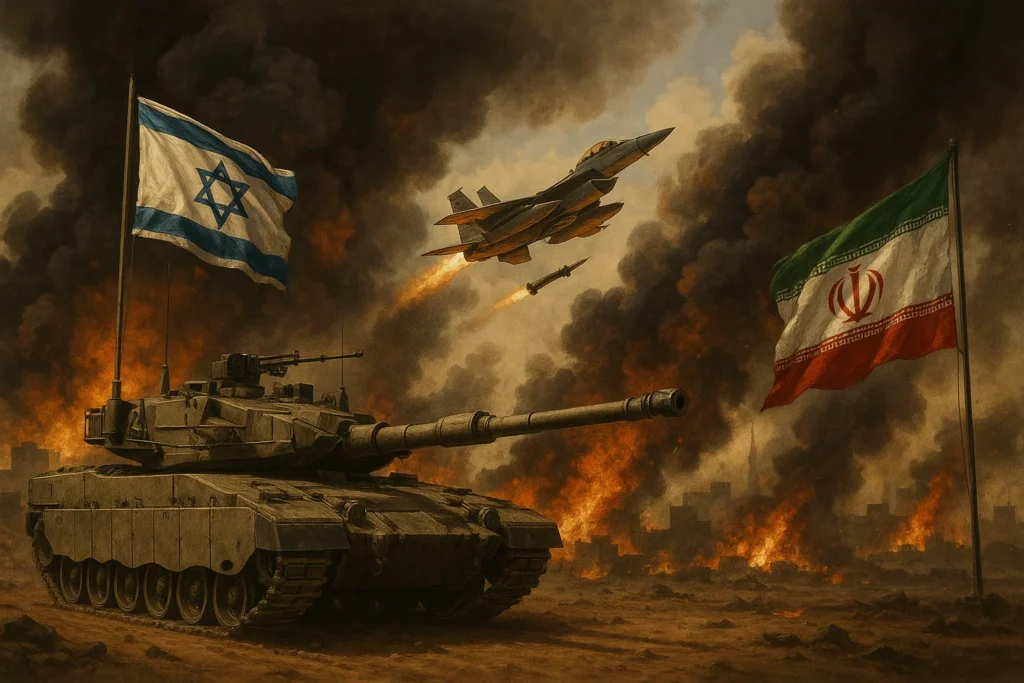
1. Iran’s Nuclear Ambitions
Israel firmly believes that Iran is covertly building nuclear weapons. Such a development is viewed as a direct existential threat, prompting Israel to take aggressive steps to halt Iran’s nuclear progress Israel vs Iran.
2. Battle for Regional Supremacy
The Middle East is a region marked by power struggles, and both Iran and Israel aim to dominate the geopolitical landscape. Iran supports and funds groups like Hezbollah (Lebanon), Hamas (Gaza), Houthis (Yemen), and various Shiite militias in Iraq—many of which are hostile to Israel. Israel considers these militias a network of terror that encircles it strategically.
3. Deep-Rooted Ideological Divide Israel vs Iran
At the heart of the conflict is a severe ideological and religious disconnect. Iran refuses to recognize Israel as a legitimate nation and has often called for its elimination. Israel vs Iran From Israel’s perspective, this isn’t just about politics—it’s about survival.
4. The U.S. Factor
The United States plays a critical role in this rivalry. As Israel’s closest ally, the U.S. has imposed crippling sanctions on Iran, isolating it economically and diplomatically. Iran, in turn, views America’s actions as blatant interference and aggression, escalating its anti-Western sentiment.
What Are the Global Consequences?
If this war continues, the outcomes could be catastrophic:
1. Widespread Instability in the Middle East
The region is already fragile. If other nations like Saudi Arabia, UAE, or Turkey join in, this could spiral into a full-scale regional war.
2. Oil Prices & Global Economy
This region exports the world’s largest oil supply. If the conflict disrupts major trade routes like the Strait of Hormuz, global fuel prices could skyrocket. Countries like India, heavily reliant on oil imports, will face economic pressure.
3. Humanitarian Crisis
Innocent civilians are already dying and being displaced. If the war drags on, millions could become refugees, and human suffering will intensify.
4. Global Diplomatic Strain
The conflict is straining international relations. The U.S. and Western allies support Israel, while Russia and China lean toward Iran. Countries like India, which maintain ties with both, are in a difficult position.
5. Iran’s Proxy Weakness
Reports suggest Iran’s proxy groups — Hezbollah, Hamas, and the Houthis — are facing setbacks due to Israel’s attacks and may not be able to offer full-scale support to Iran.
Who Supports Whom in This War?
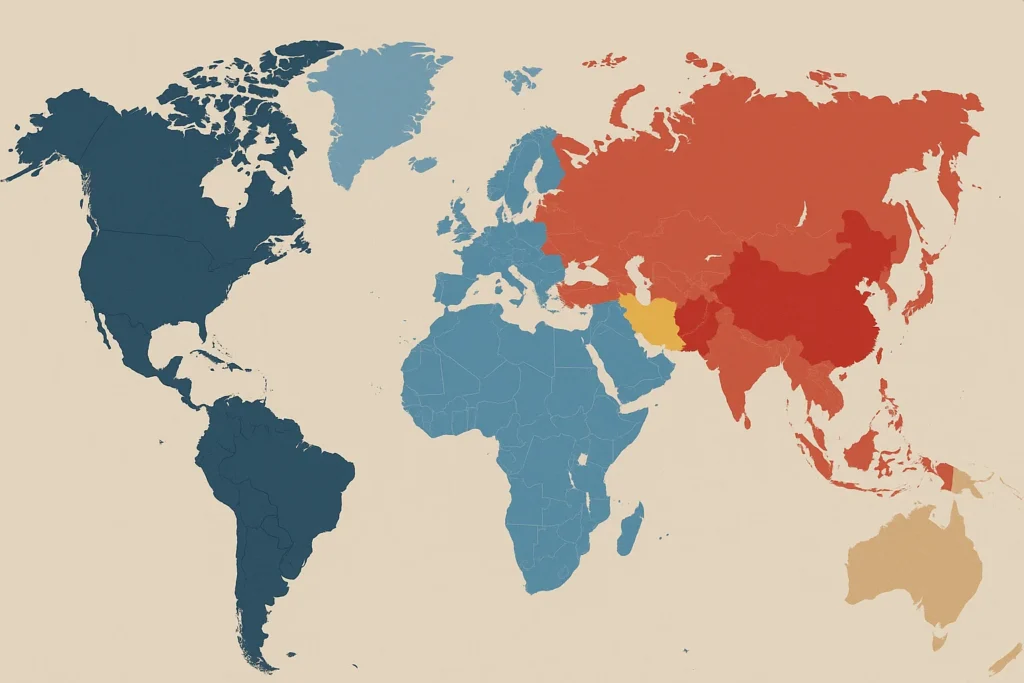
Israel’s Key Allies:
- United States (USA): The U.S. has sent military aid and intelligence. President Donald Trump reaffirmed America’s unwavering support for Israel but urged restraint to prevent further regional chaos.
- European Nations: UK, France, Germany, and others back Israel and oppose Iran’s nuclear ambitions.
- Some Gulf States: Countries like UAE and Bahrain, which normalized relations Israel vs Iran with Israel via the Abraham Accords, share concerns about Iran but aren’t openly backing Israel militarily.
Iran’s Key Supporters:
- Russia: A close ally of Iran, especially in Syria. Russia has condemned Israel’s strikes and urged all parties to de-escalate.
- China: Iran’s biggest trading partner. China calls for peace but has historically opposed Western sanctions on Iran.
- Syria: Iran’s long-standing ally.
- Proxy Groups: Hezbollah, Hamas, Houthis, and Iraqi militias support Iran’s regional agenda.
What Lies Ahead? Peace or Global War?
At this point, the possibility of peace looks dim. Both sides are locked in and unwilling to step back.
- Israel’s Goal: Destroy Iran’s nuclear facilities and neutralize its proxy network.
- Iran’s Goal: Maintain its nuclear program and regional influence while demonstrating that it won’t back down.
The United Nations, European Union, and many global powers are calling for a ceasefire and dialogue. At the G7 Summit, U.S. President Donald Trump offered to mediate peace, but whether either side listens is uncertain.
Russia has even advised its citizens to leave Israel — a serious sign that the situation could worsen.
Final Thoughts: A War With No True Winner
If this war continues to escalate, Israel vs Iran we could witness the largest regional war in decades. It could lead to:
- Soaring oil prices
- Global trade disruptions
- Human displacement
- Permanent regional instability
This is not just a conflict between two nations — it’s a threat to global peace and security. It’s high time the world intervenes diplomatically and brings both parties to the negotiation table.
Countries like India, which maintain ties with both sides, Israel vs Iran must prepare for economic and strategic fallout. Because in such wars, even a military victory often results in a loss for humanity.
If you found this blog informative, don’t forget to subscribe to Zealimpact.com. We’ll keep bringing you more real, clear, and unbiased breakdowns of Israel vs Iran.
Your support is our strength!
Feel free to share this blog with friends and family to spread awareness.

